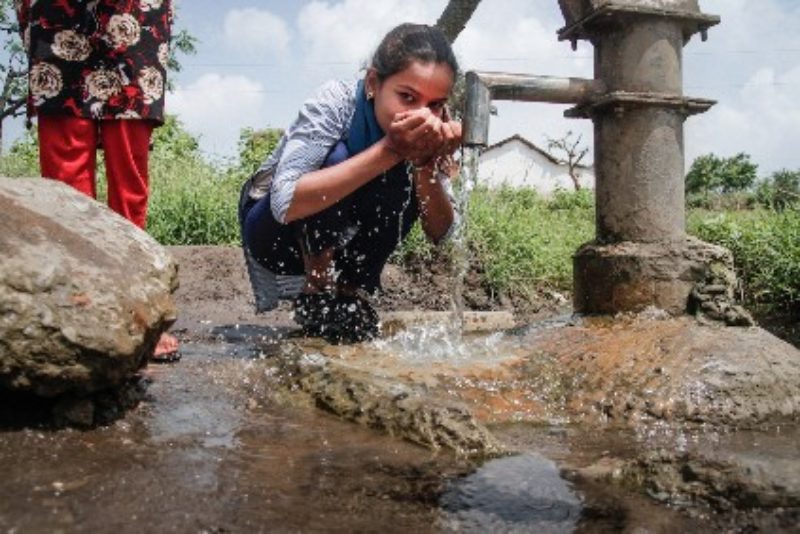Fleur Anderson MP Labour MP for Putney, Roehampton & Southfields

As co-chair of the APPG for Water, Sanitation and Hygiene I was delighted to speak in last week’s House of Commons Debate on World Water Day.
I am unapologetically evangelical about Water Sanitation Hygiene. The debate last Thursday was warmly welcomed by our constituents across the UK and across Putney who support water projects so generously with organisations like WaterAid and CAFOD. My husband is currently joining thousands of people walking 10,000 steps a day in Lent to raise money for water projects.
The British public get it. They get that you cannot eradicate poverty, have gender equality and education for all, tackle climate change, success in peace-building and security without funding clean water and good sanitation for all.
The theme of International World Water Day is the value of water, and investment in water systems is both a high value for money and highly valued by the British public.
In my former work for WaterAid and CAFOD I have seen the transformative impact that having water, sanitation and hygiene can bring to peoples lives to whole communities. It can free women from collecting water to getting jobs, enable health workers to save lives.
I have seen the impact of not having it. I have spoken with a mother I talked to whose baby had died of sepsis, an entirely preventable disease or which clean water is essential but is responsible for but is responsible for a staggering 1 in 5 deaths worldwide.
Out aid budget does not fund WASH projects enough – it is just 2% of the aid budget, and even this is under threat with the aid budget being cut by devastating amounts from £15 billion to £9 billion.
I urge the Foreign Secretary and FCDO Ministers to ‘think WASH’ in all their planning and budgeting and delivery.
I am very disappointed that the Integrated Review, published this week, contained almost no mention of water and sanitation and no recognition of the fundamental issue that it is. The scale of this issue is enormous and must be met by equal ambition.
- 2 billion people lack access to safe water for drinking, cooking or personal use.
- 55 per cent of the global population still lack access to safely managed sanitation.
- 3 billion people are unable to wash their hands with soap and water at home
- 1 in 2 healthcare facilities in the least developed countries lack basic water services, and 3 in 5 have no sanitation services.
Just think about this. If my local hospital or my children’s school had no water it would close down, it would not be considered a save hospital or school and there would be emergency works to get the water running and only then reopen. Yet half of health clinics have no water and this is considered acceptable – this disconnect between health, education and water must stop.
A shortage of clean water for handwashing, sanitation and general hygiene in healthcare facilities worldwide is undermining both COVID response and preparedness for future pandemics
The brunt of the impact of fetching water and caring is on women, it is girls who miss days of school every month because there is nowhere to manage their periods. There will be no gender equality without everyone, everywhere having clean water.
The Government have warm words about a commitment to water and sanitation and hygiene and understanding of the importance but this is not backed up by action. We need a step change in aid for WASH if we are to meet the sustainable development goals and there are some tangible changes that the Government can make.
So I urge the Government to commit to, as a minimum, return to the 0.7% aid target as soon as possible; and that in the meantime, spending on water, sanitation and hygiene is maintained at the very least.
I urge the Government to commit to ensuring that also UK Aid spending on health and on education incorporates dedicated funding to ensure that schools and health clinics have water and sanitation facilities
The Government can use the UK’s role as chair of the G7 to bring global donors together to fund the $1.2bn needed to build the basic infrastructure for water, sanitation and hygiene in healthcare facilities in the least developed countries
And as host of COP26, the UK must to lead the way by increasing the share of climate finance dedicated to helping the poorest countries adapt to climate change.
It is time for the UK to return to being a world leader in delivering water and sanitation across the world and place Water, Sanitation and Hygiene at the heart of our development programmes, and the British public will cheer us on.
